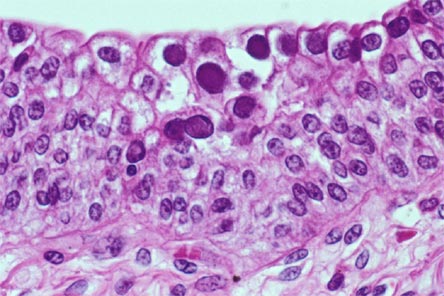Post Transplantation is a real entity. Many causes have been identified. CNI toxicity, Sirolimus, ischemia, antibody mediated rejection or de novo carcinoma, antiphospholipid syndrome, post transplant SLE are a few possible diagnosis. One study showed that among 24 patients with post transplant TMA that was de novo, 7 carried a mutation in CFH or CFI or combined mutation, indicating a genetic abnormality that might be the first hit.
In the past decade, work has been very active in the field of Atypical HUS. Many complement abnormalities have been identified namely the CFH , CFI mutations, C3 mutations, CFB mutations, all which are mutations in the alternative pathway of complement leading to activation of MAC and TMA
A recent review in AJT July 2010 issue makes the following recs:
1. Screening for the above mutations to be done with all patients with aHUS prior to transplatation. I think that perhaps any non diarrheal related HUS should be screened as this might be the first hit.
2. Avoid Living related donation in such positive cases due to genetic transmission. Suggest a friend or spouse in such cases.
3. Studies have shown that aHUS MCP mutation can undergo kidney transplantation without increase risk of recurrence.
4. Anti CFH mutations might need pre emptive plasmapheresis, rituximab and steroids to lower the antibody levels.
5. The CFH and CFI mutations, the risk of recurrence is very high and transplant might be a risky procedure.
6. The options for CFH and CFI mutations might be combined liver-kidney transplantion along with TPE pre and post. Kidney alone with Pre and post TPE or kidney alone with eculizumab( anti complement agent).
All are only cases described, so no final decisions can be made. risk benefit has to be discussed with each case. Similar situations play part in C3 and CFB mutations as well. THBD mutations also are at risk but there is no data to do anything in these cases.
Does Nephrectomy of native kidneys help? Again, doesn't seem to be beneficial.
Check out these references:
http://www.ncbi.nlm.nih.gov/pubmed/20642678
http://www.ncbi.nlm.nih.gov/pubmed/20445192
http://www.ncbi.nlm.nih.gov/pubmed/20595690
Image source:
http://www.profelis.org/amc/vorlesungen/immunologie/komplementsystem.html
